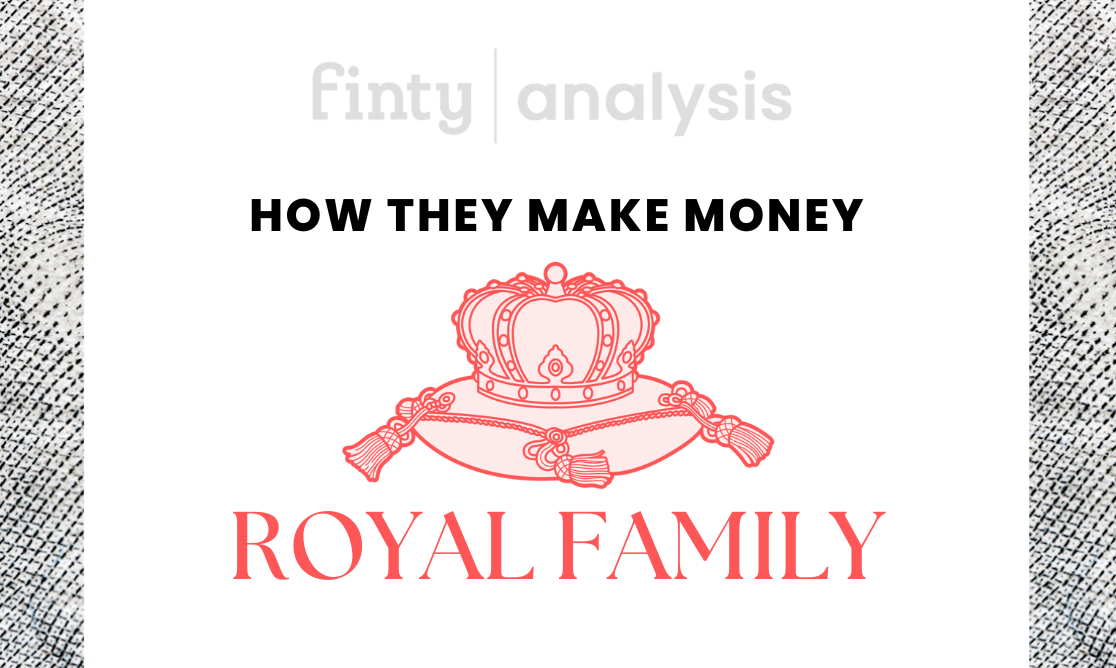The British royal family is renowned for its historical legacy and global recognition. From extravagant ceremonies to public engagements, the monarchy holds a prominent position in society.
Behind the glamor and tradition lies the question: how does the British royal family sustain their lavish lifestyle?
Let's delve into the intricacies of how the royal family generates income, the sources of their wealth, and their financial management strategies.
What does the British royal family do?
The British royal family fulfills a wide range of duties and responsibilities. They often perform official engagements, representing the monarchy domestically and internationally.
Additionally, they support Britain's diplomatic and economic relations through state visits, meetings with world leaders, and promoting British interests abroad.
While the monarchy's power is largely symbolic and ceremonial, the royal family maintains a significant cultural influence and contributes to the nation's identity and sense of unity.
On a day-to-day basis, their activities may include meeting with charities, hosting events, participating in military ceremonies, and supporting causes and initiatives that are important to them.
How the British royal family makes money
Contrary to popular belief, the funding for the British royal family does not rely solely on British taxpayers. Instead, the royal family's income is sourced through diverse means, enabling it to sustain its activities and lifestyle without direct financial support from the public.
Sovereign Grant
The Sovereign Grant is the main financial support for the ruling monarch, provided by the UK government. It is calculated as a percentage of the revenue generated by the Crown Estate, a valuable portfolio of properties, land, and assets owned by the monarchy.
The Crown Estate's revenue, derived from activities such as property rentals and commercial ventures, contributes to the Sovereign Grant, which supports the royal family in fulfilling their official duties, engagements, and the maintenance of royal residences. This funding mechanism ensures the monarchy's financial stability while upholding transparency and accountability.
The Duchies
The British royal family derives income from two prominent private estates, which serve as significant sources of revenue.
The Duchy of Lancaster, managed by the reigning monarch, consists of agricultural land, commercial properties, and various investments. The revenue generated from rentals, leases, and other investments supports the reigning monarch's official duties and personal activities.
Meanwhile, the Duchy of Cornwall belongs to the Prince of Wales and serves as a source of income to support his official responsibilities and personal expenses.
In late 2022, Prince William assumed the title of Duke of Cornwall and automatically inherited the Duchy of Cornwall as the eldest son of Charles III upon his ascension to the throne. This parcel of land was established in 1337 and spans 128,000 acres. It is valued at over a billion dollars and provided an annual income of $24 million in 2021 from residential and commercial rents paid to the Duke.
On the other hand, King Charles holds the title of the Duke of Lancaster and oversees the Duchy of Lancaster, which encompasses 45,550 acres of land holdings, including rural estates, farmland, urban developments, historic buildings, and commercial properties spread across England and Wales.
Investments and personal wealth
The royal family's financial resources extend beyond their official funding sources. They maintain a diverse portfolio of investments, including stocks, bonds, and real estate, contributing to their overall wealth.
Moreover, individual members of "The Firm," as they are often referred to as, possess personal wealth acquired through inheritances, gifts, and earnings from their own professional pursuits before taking on official roles. This personal wealth adds to the financial resources available to the family and supports their personal expenses and endeavors.
Tourism and National Heritage
The royal family's prestigious status and the allure of the British monarchy contribute significantly to the influx of tourists. This, in turn, generates revenue through visits to royal palaces, castles, and other attractions associated with the royal family. Tourists from around the world are drawn to experience the rich history and cultural heritage embodied by these royal landmarks, providing a substantial source of income for the monarch.
The revenue from tourism helps support the maintenance and preservation of these iconic sites, ensuring their continued accessibility to the public.


